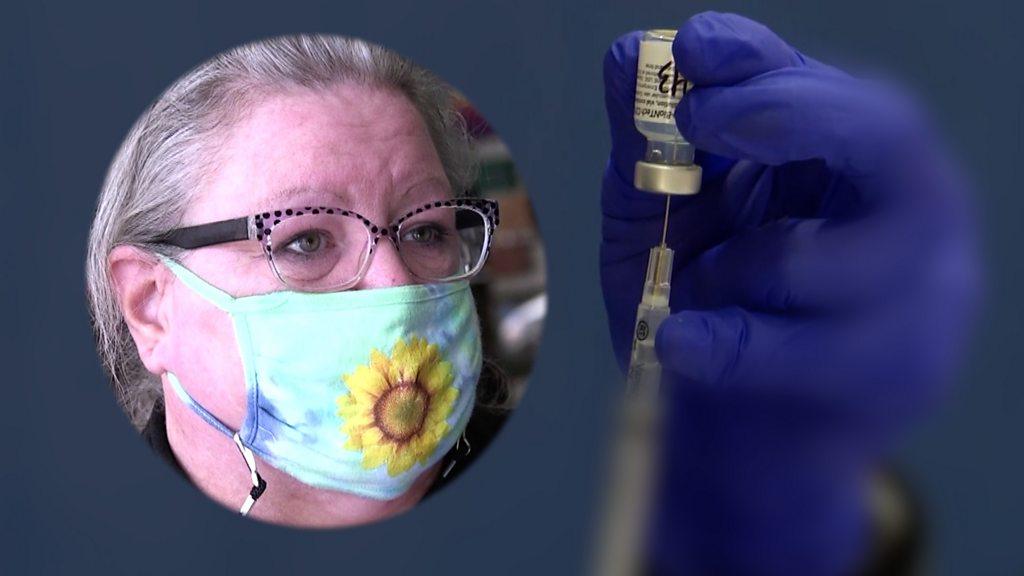Covid-19: CDC brings back indoor mask guidance for virus hot spots
- Published
Which face covering is best to wear?
Americans living in areas seeing new surges of Covid-19 have been advised to wear masks indoors again - even if they are fully vaccinated.
The Centers for Disease Control and Prevention (CDC) made the announcement on Tuesday, citing the spread of the highly contagious Delta variant.
There were 89,418 new cases on Monday, Johns Hopkins University reported.
Masking has been a controversial subject in the US, and one politicised since the start of the pandemic.
The updated guidance says in public indoor settings, everyone should wear masks to prevent the spread of the Delta variant.
Notably, this includes students and staff at schools, where masking has been a contentious issue.
In a statement following the announcement, President Joe Biden said masking students "is inconvenient" but would allow them to learn alongside classmates "with the best available protection".

What do Americans think?
"It feels like we're back at the beginning of this all. I really don't want to go back to wearing masks indoors, but Delta is definitely a concern." - Augustin Cortez, 37, of Texas
"The CDC decision to drop the mask thing in the first-place was short-sighted and gave folks the idea that this, the pandemic, was coming to an end. It isn't, and the CDC saying that people should keep masks on inside isn't a huge surprise." - Angelica Mata, 27, of California
"I do not believe these mask recommendations are very useful. Little is gained from fully vaccinated people wearing masks, and those that won't get vaccinated are not going to wear masks." - Jason Munshi-South, 43, of Connecticut

In recent weeks, around 97% of patients admitted to hospital due to the virus in the US were unvaccinated.
As of mid-July, just under half of the country's population has been fully vaccinated. While some, like children and people with compromised immune systems, are unable to get the vaccines, many Americans are hesitant to get the jabs.
Experts have warned about the spread of disinformation about the vaccines contributing to this reluctance.
The regions where cases have surged in the past month - mainly in the southern states - are also among the least vaccinated.
In Louisiana, the number of new infections since the beginning of July has neared early 2020 levels. Mississippi and Alabama, where only about a third of the population is vaccinated, are also among the states that have been disproportionately affected.
Florida alone has seen more than 10,000 cases reported each day, on average, this week.
Related topics
- Published4 May 2021
